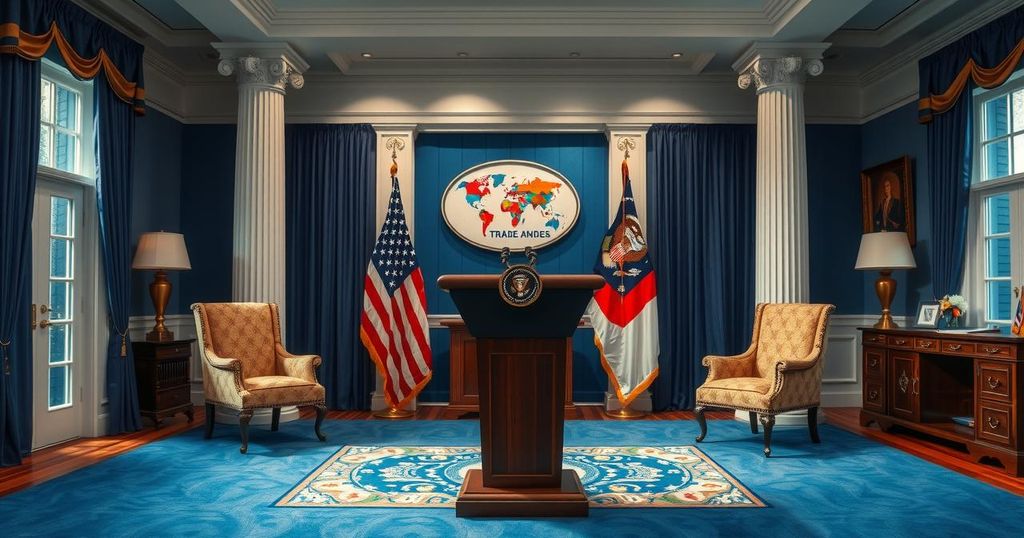Politics
AI, ARTIFICIAL INTELLIGENCE, ASIA, BAIDU, BEIJING, BUSINESS, CALIFORNIA, CHINA, CHINA ASSET MANAGEMENT, CN, CNBC, DEEPROUTE, DEEPSEEK, DING WENJIE, DONALD TRUMP, KLING, KUAISHOU, KUNLUN TECH, MARKET TRENDS, MARKETING, MAXWELL ZHOU, MEXICO, NBC LA, NORTH AMERICA, SOUTHERN CALIFORNIA, TECHNOLOGY, TENCENT, U. S, UNITED STATES, YUANBAO
Clara Montgomery
China’s AI Boom: A Strategic Response to U.S. Tariffs
The emergence of generative artificial intelligence offers new opportunities for Chinese companies to counter U.S. tariffs. Firms have been launching innovative AI products, enhancing their revenue models. Analysts believe AI could positively affect corporate earnings amidst economic challenges, prompting discussions beyond tariffs between U.S. and China.
As Chinese companies navigate U.S. tariffs, the rise of generative artificial intelligence (AI) marks a pivotal difference between President Trump’s first and second terms. Over the past two weeks, numerous prominent Chinese firms have unveiled new AI products or demonstrated innovative revenue models utilizing this technology.
Noteworthy developments include Kuaishou’s AI video generation tool, Kling, which has reportedly earned over 100 million yuan (approximately $13.78 million) since its launch. Additionally, Tencent has advanced its AI capabilities with updates to its 3D visual generation model and the release of its Hunyuan T1 reasoning model.
Baidu recently introduced website and game-building tools that harness conversational prompts, enhancing accessibility to technology without coding expertise. Similarly, Kunlun Tech enhanced its Mureka app, enabling AI-generated music production. These advancements illustrate China’s ability to leverage its manufacturing prowess to gather valuable data for sector-specific AI development.
Maxwell Zhou, CEO of DeepRoute.ai, expressed optimism about the company’s autonomous delivery system being operational by early next year. This system will allow users to command deliveries using simple voice instructions, emphasizing the rapid pace of innovation in the sector.
While the full impact of AI on businesses remains uncertain, analysts suggest these tools may mitigate some economic challenges, including the effects of tariffs. Ding Wenjie of China Asset Management stated that AI technologies are lifting prospects for corporate earnings growth and are vital indicators of economic recovery amidst ongoing trade pressures.
Goldman Sachs projected that a potential 20% increase in U.S. tariffs could lead to a 5% reduction in Chinese corporate earnings, complicating the economic landscape further. However, columnist Thomas Friedman highlighted that discussions between the U.S. and China should prioritize collaboration on AI rather than solely focusing on tariffs or geopolitical tensions.
In conclusion, the rise of generative artificial intelligence in China is transforming the economic landscape for companies faced with U.S. tariffs. With significant advancements in AI technology across various sectors, firms are optimistic about enhancing corporate earnings and mitigating economic challenges. The collaborative potential between the U.S. and China regarding AI innovation offers promising avenues for future discussions.
Original Source: www.nbclosangeles.com








Post Comment